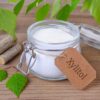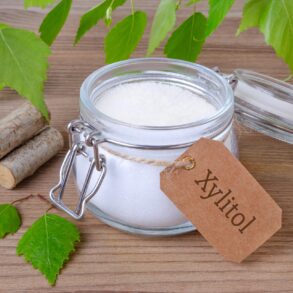If you’ve ever dealt with stomach ulcers or gastroesophageal reflux disease (GERD), you may have heard about a medication called Ulcuprazol. In this comprehensive guide, we’ll take a closer look at Ulcuprazol, its medical uses, potential side effects and precautions, interactions with other medications, and proper dosage and administration. By the end, you’ll have all the information you need to make informed decisions about Ulcuprazol.
What is Ulcuprazol?
Ulcuprazol is a medication classified as a proton pump inhibitor (PPI), commonly prescribed to address gastrointestinal conditions such as stomach ulcers and gastroesophageal reflux disease (GERD). Stomach ulcers are painful sores on the stomach lining, while GERD is a chronic condition involving stomach acid flowing back into the esophagus, causing symptoms like heartburn.
The active ingredient in Ulcuprazol is omeprazole, responsible for its therapeutic effects. Omeprazole targets the gastric proton pump in the stomach, which produces acid. By inhibiting this pump’s action, Ul cuprazol reduces stomach acid production, alleviating symptoms and facilitating the healing of ulcers and damaged esophageal tissue.
How Does Ulcuprazol Work?
The key component in Ulcuprazol, omeprazole, hinders the activity of the gastric proton pump located in the stomach. This pump is pivotal in generating stomach acid, activated when food enters the stomach to facilitate digestion. However, for individuals with conditions like stomach ulcers and GERD, excessive stomach acid production can result in pain, inflammation, and tissue damage.
Ulcuprazol works by blocking the gastric proton pump, effectively reducing the production of stomach acid. This reduction in acid levels helps alleviate symptoms such as heartburn, acid reflux, and stomach pain. Furthermore, by decreasing stomach acidity, Ulcuprazol creates a more favorable environment for the healing of ulcers and damaged esophageal tissue. This enables the body’s natural healing processes to unfold, promoting the restoration of normal gastrointestinal function.
The Therapeutic Applications
Ulcuprazol, a widely prescribed medication for various gastrointestinal issues, has demonstrated remarkable efficacy in the treatment of stomach ulcers and gastroesophageal reflux disease (GERD). By diminishing stomach acid production, Ulcuprazol plays a pivotal role in alleviating symptoms and fostering the healing process.
Treatment of Stomach Ulcers with Ulcuprazol
Stomach ulcers, or gastric ulcers, are open sores that form on the stomach lining, potentially caused by factors like infection, prolonged use of nonsteroidal anti-inflammatory drugs (NSAIDs), or excessive alcohol consumption. Symptoms range from mild discomfort to severe pain, bloating, and, in severe cases, bleeding.
In treating stomach ulcers, Ulcuprazol is often part of a comprehensive plan. By curbing stomach acid production, Ulcuprazol helps alleviate symptoms and supports healing. This medication inhibits the proton pump, a key enzyme responsible for stomach acid secretion. By blocking this enzyme, Ulcuprazol effectively reduces stomach acidity, facilitating ulcer healing.
Aside from its acid-reducing properties, Ulcuprazol has anti-inflammatory effects, further aiding the healing process. By reducing stomach lining inflammation, Ulcuprazol relieves pain and discomfort associated with stomach ulcers. This dual-action mechanism establishes Ulcuprazol as an effective and commonly prescribed treatment for stomach ulcers.
Ulcuprazol and Gastroesophageal Reflux Disease (GERD)
GERD, a chronic condition where stomach acid flows back into the esophagus, causing discomfort and inflammation, is effectively managed by Ulcuprazol. Symptoms include heartburn, acid regurgitation, chest pain, and difficulty swallowing, potentially leading to complications such as esophagitis, strictures, and an increased risk of esophageal cancer.
Ulcuprazol is a go-to medication for alleviating GERD symptoms and promoting esophageal healing. By reducing stomach acid production, Ulcuprazol relieves heartburn, acid regurgitation, and associated symptoms. Binding to the proton pump, Ulcuprazol inhibits its action, effectively reducing stomach acid secretion.
Moreover, Ulcuprazol’s role in promoting esophageal healing is crucial. Constant exposure to stomach acid can lead to inflammation and damage to the esophageal lining. Ulcuprazol, by reducing acid production, facilitates esophageal healing, reducing inflammation and averting further complications.
While Ulcuprazol significantly alleviates GERD symptoms, it’s important to note that lifestyle modifications such as avoiding trigger foods, maintaining a healthy weight, and elevating the head while sleeping are essential for managing the condition. Combining these lifestyle changes with Ul cuprazol usage enhances the overall quality of life for individuals dealing with GERD.
Conclusion
Ulcuprazol, with omeprazole as its active component, effectively tackles stomach ulcers and GERD by reducing stomach acid production. This medication, inhibiting the gastric proton pump, not only relieves symptoms but also aids in the healing process. Whether managing stomach ulcers or GERD, Ul cuprazol proves to be a pivotal and commonly prescribed solution.








